09/22/21
WATCH: Gov. Cox implores federal government to work with states at Utah workshop of ‘Working Lands, Working Communities Initiative’
Gov. Spencer Cox implored the federal government to work closely with states on the pressing land management issues facing the West in remarks at the Utah workshop for the Working Lands, Working Communities Initiative.
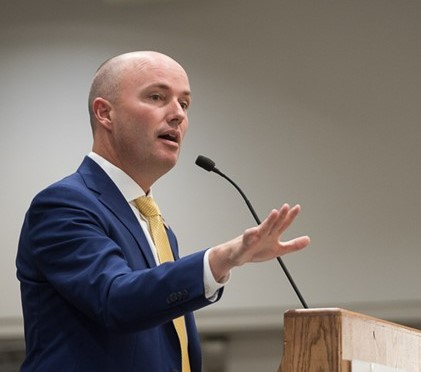 “To our federal partners: Please listen to the people who are close to the land. It’s important for you to know what it’s like to live in the West,” said the Governor. “We care more about these landscapes than you do, even if we might express it differently.”
“To our federal partners: Please listen to the people who are close to the land. It’s important for you to know what it’s like to live in the West,” said the Governor. “We care more about these landscapes than you do, even if we might express it differently.”
The Governor’s remarks, which also touched on the impact of drought and wildfires on Utah during the past year, opened the Salt Lake City workshop in support of the central policy effort of WGA Chair, Idaho Gov. Brad Little. The day also included roundtable conversations between federal, state and local policymakers and stakeholders seeking to develop bipartisan strategies to improve cross-boundary management of lands, mitigate wildfire risk and restore ecosystems.
The workshop also included conversations about innovations in forest products, the challenges of increased tourism, and strategies for building capacity in communities to coordinate and sustain successful rangeland conservation effort.
You can view all workshop sessions by clicking on the links below.
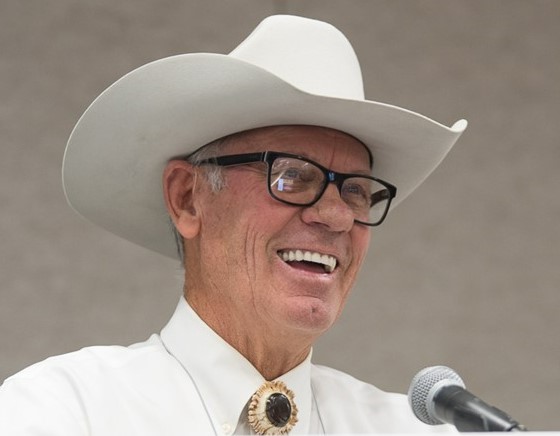 WATCH: Roundtable: Working Lands, Working Communities: This roundtable provided an overview of Governor Little’s initiative, setting the stage for execution of the initiative and providing a Utah perspective on collaboration and management needs. Highlights from participants included:
WATCH: Roundtable: Working Lands, Working Communities: This roundtable provided an overview of Governor Little’s initiative, setting the stage for execution of the initiative and providing a Utah perspective on collaboration and management needs. Highlights from participants included:
Redge Johnson, Executive Director, Utah Public Lands Policy and Coordinating Office: "Working lands provide food, fiber and minerals. Without those three commodities, nothing in this room would exist...Urban communities don’t survive without working lands. If we aren’t protective of those working landscapes, then the communities that rely on them don’t exist."
Bruce Adams, Commissioner, San Juan County: "We want to be at the foundation level on anything that happens on public lands because it affects everything we do as county officials. If were not in the room at the very beginning, we feel left out.”
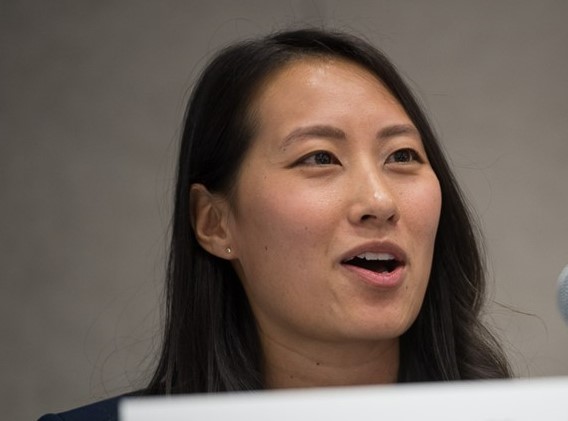 Natalie Randall, Executive Director, Utah Tourism Industry Association: "As a state, we have the capacity and the talent to support our public land managers. We are able to find ways to build the resources and the networks to help the federal partners understand what our state needs."
Natalie Randall, Executive Director, Utah Tourism Industry Association: "As a state, we have the capacity and the talent to support our public land managers. We are able to find ways to build the resources and the networks to help the federal partners understand what our state needs."
WATCH: Keynote, Utah Governor Spencer Cox: The Governor’s remarks touched on collaborative land management and the impact of drought and wildfires on Utah during the past year, among other topics. Highlights included:
"Working lands and working communities is something that resonates immediately with me, and certainly those who live in the West who understand how important the interplay between working lands and communities is and always have been."
“Forests need to be disrupted. They renew themselves, that’s how they grow… It hasn’t happened for the last 200 years and what you end up with is no wildlife, terrible water conditions, and explosive fire conditions.”
WATCH: Roundtable: Innovation in Pace and Scale: This panel examined innovative methods of increasing the pace and scale of land management efforts on wildfire mitigation and ecosystem resilience. Highlights from participants included:
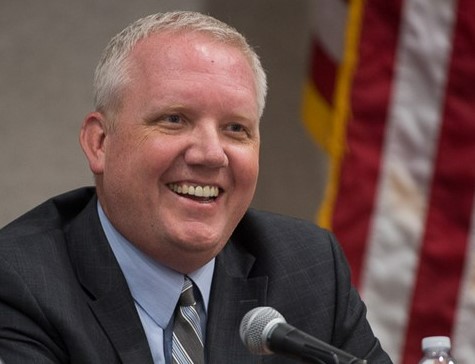 Greg Sheehan, State Director, Bureau of Land Management: “People need to let down their guard and say “lets all take credit for what we got done” instead of just saying “me” all the time.”
Greg Sheehan, State Director, Bureau of Land Management: “People need to let down their guard and say “lets all take credit for what we got done” instead of just saying “me” all the time.”
Tyler Thompson, Watershed Program Director, Utah Department of Natural Resources: "We hate straight lines. If your project has a straight line, you’re doing something wrong. That means you’ve hit a boundary or a fence line and you haven’t talked to the neighbor.”
Mike Siaperis, owner of 106 Restoration: “I didn’t invent anything, I’m just good at copying successful things from the past.”
Roundtable III: Case Study: Collaboration and Progress: Panelists looked at efforts within the Utah Off-Highway Vehicle community to address land management priorities. Highlights from participants included:
Chris Haller, Off-Highway Vehicle Program Coordinator, Utah Division of Parks and Recreation: “Motorized trail connectivity is vitally important to the success of rural businesses and economies."
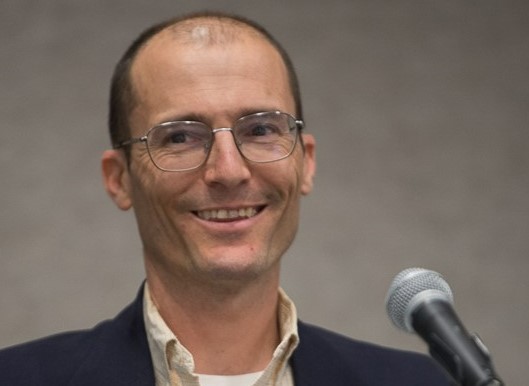 Clif Koontz, Executive Director, Ride with Respect: “When we work together, the federal land managers get more help, the local and state government gains more influence on the lands that surround their communities, and we get better decisions and better implementations.”
Clif Koontz, Executive Director, Ride with Respect: “When we work together, the federal land managers get more help, the local and state government gains more influence on the lands that surround their communities, and we get better decisions and better implementations.”
Redge Johnson, Executive Director, Utah Public Lands Policy and Coordinating Office: “If you had asked me before if we would ever get all of these groups together to find a solution to this problem, I would have said nope. It took us 2 years to draft The Path Forward.”
Brian Steed, Director of the Utah Department of Natural Resources: "The Shared Stewardship Initiative has been a real game changer in our dealings with the Forest Service. We've been able to work with the Forest Service on nearly a daily basis to identify areas that are in need of forest treatments and then being able to use the state as a mechanism to gather funding."
Roundtable IV: Dealing with Drought: This roundtable looked at the impacts of persistent drought on western communities and ecosystems and disucssed solutions to mitigate drought effects. Highlights from participants included:
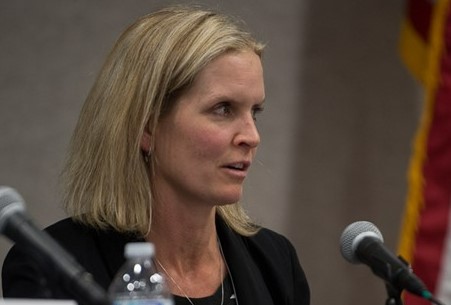 Candice Hasenyager, Director, Utah Department of Water Resources: “We came up with a great campaign called “Water is Life.” When we went into this extreme drought, we recognized that it was not the campaign that we needed in the moment. So we converted to say we're in an extreme drought. It really helped to increase the amount of people that knew about it."
Candice Hasenyager, Director, Utah Department of Water Resources: “We came up with a great campaign called “Water is Life.” When we went into this extreme drought, we recognized that it was not the campaign that we needed in the moment. So we converted to say we're in an extreme drought. It really helped to increase the amount of people that knew about it."
Gene Shawcroft, General Manager, Central Utah Water Conservancy District: “This was one of the worst water years ever. We survived the summer because of storage but our checking account has been depleted.”
Tony Willardson, Executive Director, Western States Water Council: “Being a political scientist and an economist, I tell my brothers that are engineers and scientists that those are not the hard sciences. They have equations and solutions, whenever you deal with people, there are no clear cut equations."
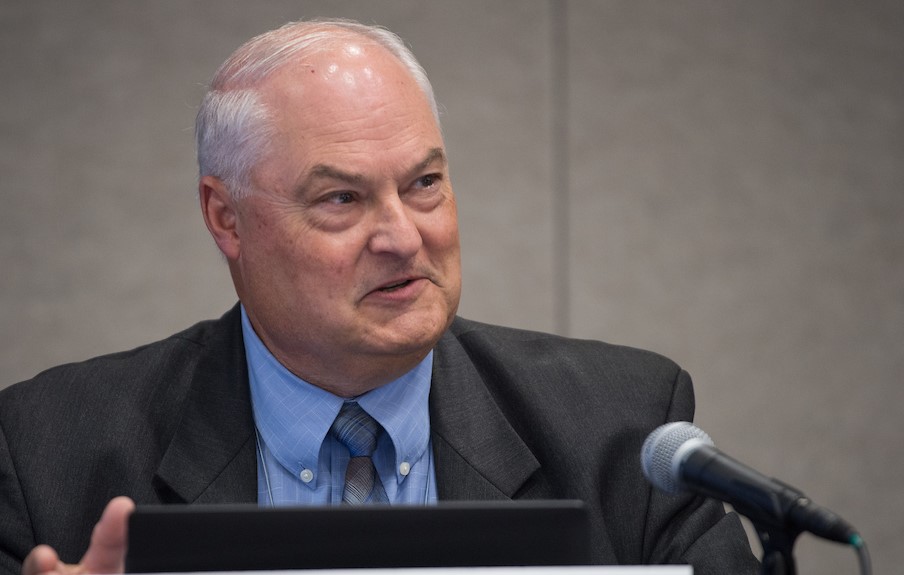 Valerie Deppe, Chief, Compliance and Water Resources Group, U.S. Bureau of Reclamation: "This water year and the continued drought, coupled climate change, is difficult for the western states, tribes, fisheries, wildlife, farmers, ranchers, and communities."
Valerie Deppe, Chief, Compliance and Water Resources Group, U.S. Bureau of Reclamation: "This water year and the continued drought, coupled climate change, is difficult for the western states, tribes, fisheries, wildlife, farmers, ranchers, and communities."
Roundtable V: Forest Product Innovations: This panel explored innovations in various forest products, such as biochar and cross-laminated timber, that can help increase the value of small-diameter wood and support increased active management of forest lands. Highlights from panelists included:
Jamie Barnes, State Forester, Utah Department of Natural Resources: “This is a time we can work together, share our goals, engage in informed efforts, and share resources on projects.”
Bergen Eskildsen, Wood Utilization Coordinator, Utah Department of Natural Resources: “Mass timber and cross laminated timber) could be a huge market for low-value wood…there are a lot of emerging wood products in the construction industry that are able to utilize lower value lumber.”
Laura Ault, Shared Stewardship Coordinator, Utah Departmnt of Natural Resources:
“We might be subsidizing some of these industries, but the alternative is that if we lose a community or a watershed (it's going to be more expensive down the road).”
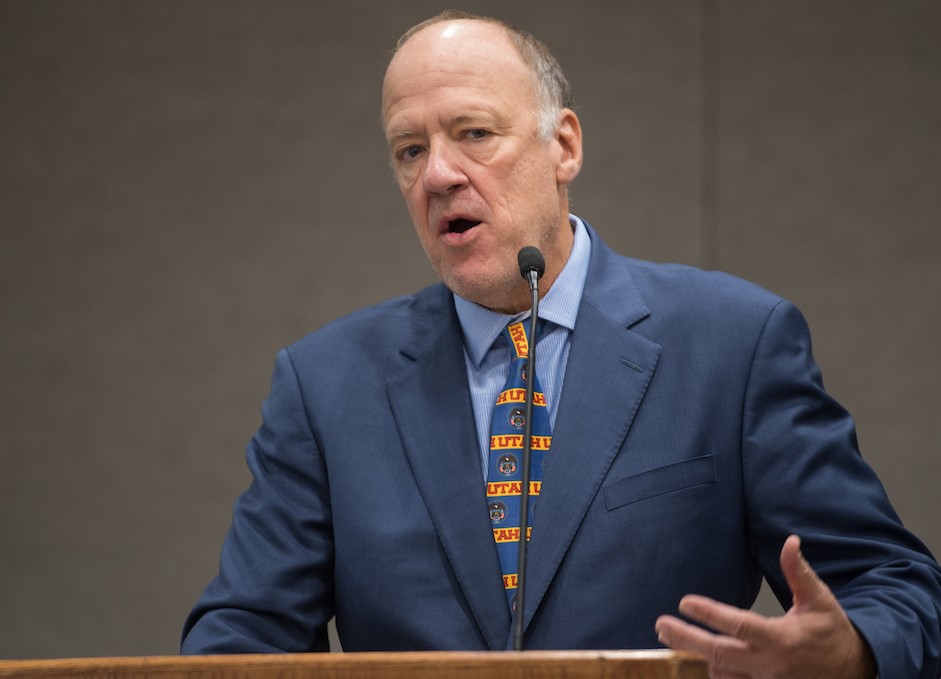
Vicki Varela, Managing Director, Utah Office of Tourism: “Something that has been super important for me is to be an ally and a partner to help (The Utah Office of Outdoor Recreation) to be as big and bold and to have as much money as we can find for it. The outdoor recreation economy is so vital, not just to quality of life and the visitor economy, but to other economic development.”
Pitt Grewe, Director, Utah Office of Outdoor Recreation: “If you don’t have an Office of Outdoor Recreation in your state, please get one and work with your representatives to create one. These offices… bridge the gap between the private sector and the land management agencies.”
Jeff Rasmussen, Director, Utah Parks and Recreation: “Education is one key to addressing (responsible recreation). If people understand how to recreate safely and responsibly, they’re more likely to do it. A lot of the folks that might be creating issues simply might not know better because they’ve never recreated outside.”
Roundtable VII: Community Capacity for Rangeland Management: Restoring and maintaining healthy rangelands in the West requires coordinated action by stakeholders across federal and private lands. This panel explored strategies for building capacity in working lands communities to coordinate and sustain successful rangeland conservation efforts. Highlights from participants included:
Terry Messmer, Director, Utah’s Community-Based Conservation Program: "If we're going to make voluntary conservation work, it needs a partnership."
Emily Fife, State Conservationist, Utah State University Extension, Natural Resources Conservation Service: "One skill that I think would be important for our communities as a whole across federal, state, NGOs and the local community to develop is empathy. It’s a skill that we don’t talk about enough, but we need to be able to put ourselves in each other’s shoes and find out where the solutions that we want to bring to the table can be across different interests."
Troy Forrest, Division Director, Utah Grazing Improvement Program: “We help to drive policy. We comment on every (grazing related) environmental analysis. That’s making a difference. We're paying attention.The state is weighing in, we're taking the place that in FLPMA we were given to be a coordinating partner.”
Craig Buttars, Commissioner, Utah Department of Agriculture and Food: “It's important to realize that we don’t have enemies. The people who have lived on the land and provided for their family on that land for generations know the land best. We need to rely on their opinions and their experience as we work to preserve rangeland and manage them in such a way that it will be there for future generations.”
The second workshop of the Initiative was held in Colorado, where Gov. Jared Polis cited the need for regional collaboration. Watch the Colorado workshop.
Take a Survey about the Workshop
WGA has created a survey that allows virtual attendees of the Utah workshop to offer comments on the panel presentations and provide input on the issues the initiative is examining.
Please provide your comments and input on the panel discussions. Preferably, the survey would be completed by Sept. 30, but WGA will accept responses after that date. You do not need to answer every question to submit your survey. You may answer “Not Applicable” or leave the response blank.
Please Note: Incomplete surveys cannot be saved and finished later. We recommend that you read all the questions before you begin entering responses.